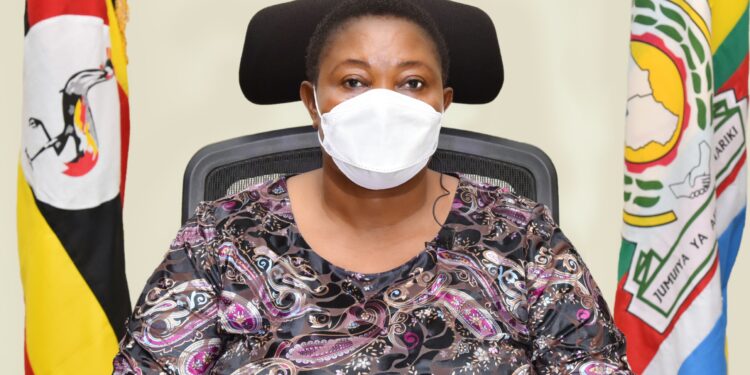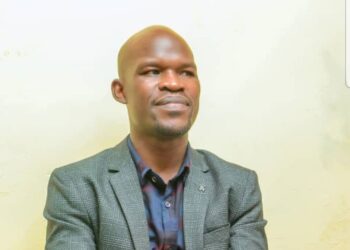It’s now over one year since the official launch of the much-acclaimed Parish Development Model (PDM) flagship wealth creation programme of Government by H.E President Yoweri Museveni in Kibuku district, Eastern Uganda. What started as in idea is now reality. There are hits, as they say, and some misses, but the truth is that PDM is already transforming lives and changing mindsets.
The plan is that each of Uganda’s 10,694 parishes will receive seed capital as a revolving fund which will stay for use by beneficiaries at the parish level. Out of the funds, women and youth are each entitled to 30 percent while men get 20 percent. The remaining 20 percent is earmarked for the elderly and Persons living With Disabilities (PWDs).
Unfortunately, the disbursement of PDM funds has hit a snag in some districts and cities due to corruption and the presence of ghost members in the enterprise groups. Ineligible individuals have accessed the funds, illegally. This is so wrong and categorically condemnable. It’s a form of corruption, and it disadvantages the genuine target groups, the most vulnerable-but we are not folding our hands and just looking on. Why should councilors, LC leaders, civil servants and the rich be included among beneficiaries? There is collusion to deny the vulnerable an opportunity to join the money economy and an attempt to create controversy around the programme for no reason.
While on his tour in Northern Uganda, and in Gulu district in particular, H.E the President received reports of corruption in the management of PDM, with some culprits already detained.
It was noted that the main factor precipitating this corruption is failure of Chief Administrative Officers (CAOs) and Town Clerks to provide RDCs and RCCs information about the beneficiaries in each parish. This is despite requests to them to do so, including the Permanent Secretary, Ministry of Local Government, the lead implementing agency directing them to do so. This information would facilitate RDCs and RCCs in their monitoring role.
I understand that some CAOs and Tcs have complied with this request/directive. Others, for whatever reasons, have not. I think some fear the repercussions because of irregularities. Nevertheless, all CAOs and TCs should avail those lists to Resident District Commissioners (RDCs) and Resident City Commissioners (RCCs), and provide evidence of having done so. If any CAO or TC defies this directive, RDCs and RCCs should report to my office. I will inform my colleague Minister of Local Government to take action.
RDCs and RCCs, when they receive these lists, should ensure that they scrutinise them and make their own inquiries to ascertain their accuracy, using Gombolola Internal Security Officers (GISOs) and their other contacts on the ground. Additionally, the lists should be displayed in public places within the parish and where community members can verify if the beneficiaries are actually residents and belonging in the categories of eligible persons to benefit from the programme as per the original concept and the guidelines-these must be “active poor” who have been outside of the money economy. Civil servants, LC leaders, businessmen do not fit in this category, and if any is found on the lists, they must be removed and deserving beneficiaries admitted.
Such leaders should advise themselves and get out of the programme before they are publicly shamed and charged accordingly. Ghost beneficiaries must also be weeded out!
RDCs and RCCs should take another step and read out names of beneficiaries during their radio programmes; if they are too many, as indeed they are, they should read out names of ghost beneficiaries and those “leaders” attempting to steal money meant for the ordinary person. The community can then know who the enemies of socioeconomic transformation are and, subsequently, take political action against them.
That way, we shall ensure that PDM achieves its original objective and that everybody knows where they are positioned in its implementation.
PDM money is coming directly to the grassroots, unlike with previous programmes where money remained at the districts. Members of the public should take interest to follow this money so that it is not stolen by their neighbours.
But the public should also be mindful not to raise unsubstantiated allegations and untruths, more so if they have not yet understood the programme very well. It’s not good to interfere with leaders and civil servants when they are doing the correct thing. Ugandans should cooperate with Government officials and provide them with accurate information whenever they need it rather than waiting for wrong beneficiaries to access money, and then they complain.
I will be glad to receive a report from Kibuku showing progress so far and the list of beneficiaries, as an example, since that’s where the programme started with the famous Presidential catch phrase: “abakolera ekidda kyoonka.”
I wish to thank the PDM Secretariat for continually training leaders and implementers on how best to implement the programme, and receiving feedback on trends and challenges for due consideration. Transparency and sufficient information for all stakeholders will go a long way in helping to weed out corrupt tendencies in this beloved initiative.
*The author is the Minister for the Presidency*
Do you have a story in your community or an opinion to share with us: Email us at editorial@watchdoguganda.com













